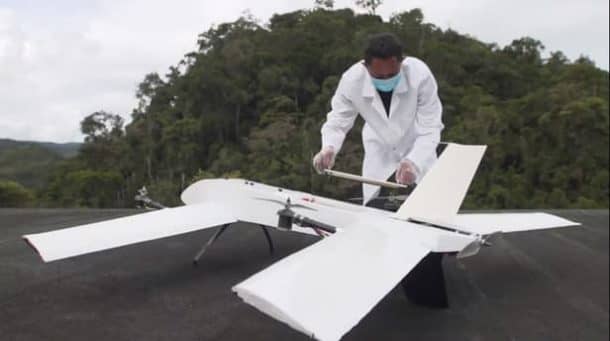When we think about drones, what is the first thought that comes to our minds? Weapon, danger, and killing! Scientists at Stony Brook University plan to reverse these thoughts and associate these Unmanned Aerial Vehicles (UAVs) with saving lives instead of the common notion of ending lives.
The team is working with Vayu, the drone manufacturer, to develop medical equipment that can reach the rural areas of Madagascar. They will then use the UAVs to transport the cutting-edge medical tools to the most remote areas. Dr. Peter Small, the Director of Stony Brook’s Global Health Institute, said:
“A billion people in the world do not have access to reliable roads. For them, getting sick requires running a gauntlet in order to get healthcare. That’s very common in Madagascar, where 70 percent of people live in very rural settings, and a significant number live in truly remote settings. These are places that are only accessible on foot; you can’t even get a bicycle there. The idea [of our work] is that by using drones we can not just fly out to villages, but collect diagnostic specimens and deliver care. It’s really revolutionary.”
This project is backed by the government of Madagascar and the USAID. Just recently, Stony Brook’s Global Health Institute has accomplished the world’s first ever series of drone flights that provided healthcare. The drones were autonomous with a long-range control. They collected blood and stool samples from rural villages and returned to Stony Brook University for testing of the samples.

These health drones take-off and land like mini-copters and cover long distances. The next step would be to expand this healthcare technology far and wide to reach some of the world’s most remote and extremely poor communities.
“The cool thing about this is the bigger picture: how we can use drone technology to forward-deploy healthcare,” said Dr. Small. “What I’m envisioning is a system in which a health worker has a patient with an undiagnosed cough, and can then use an emergency beacon to call in a drone. That drone could then fly back a sputum sample to the lab and, if it tests positive for [tuberculosis] the drone flies back the next day with the medication it needs.”
https://vimeo.com/171000188
Did we mention how exciting this program is? Think of how many lives these healthcare drones could save in the future incidents! This is revolutionary because it will help the poor and remote community in our global society. Let us know what do you think about this amazing cause!


